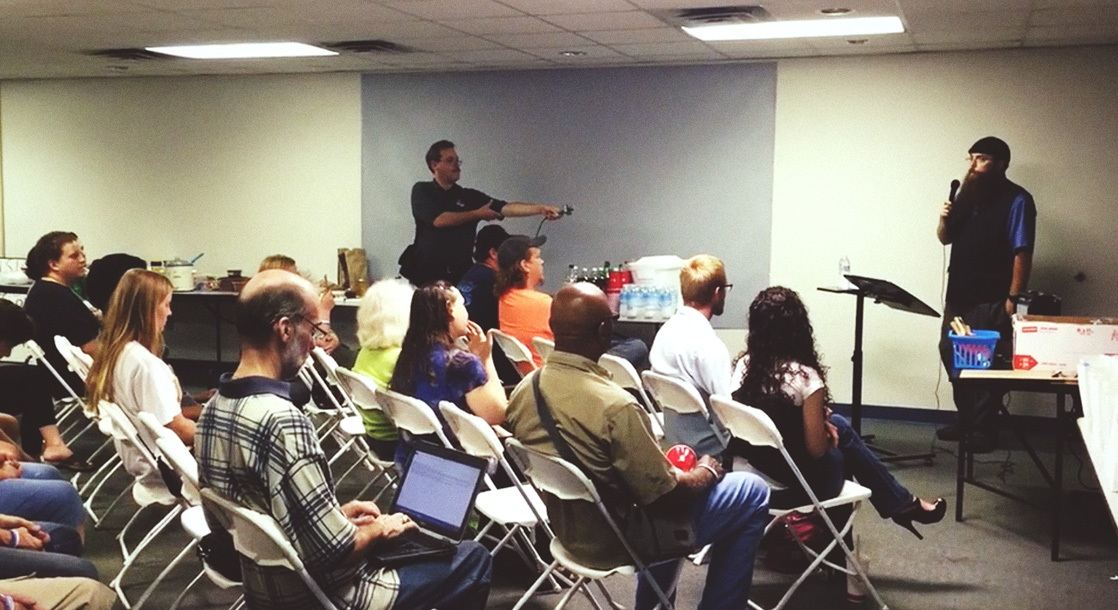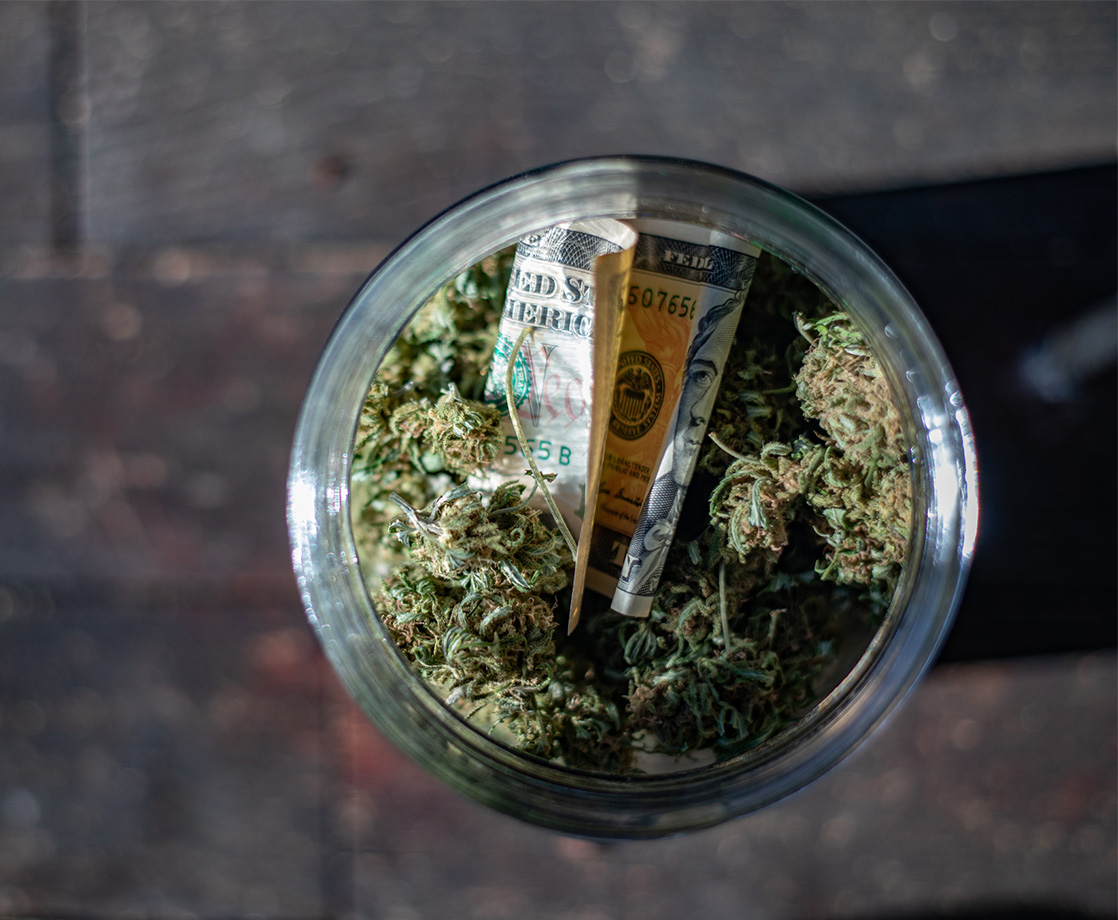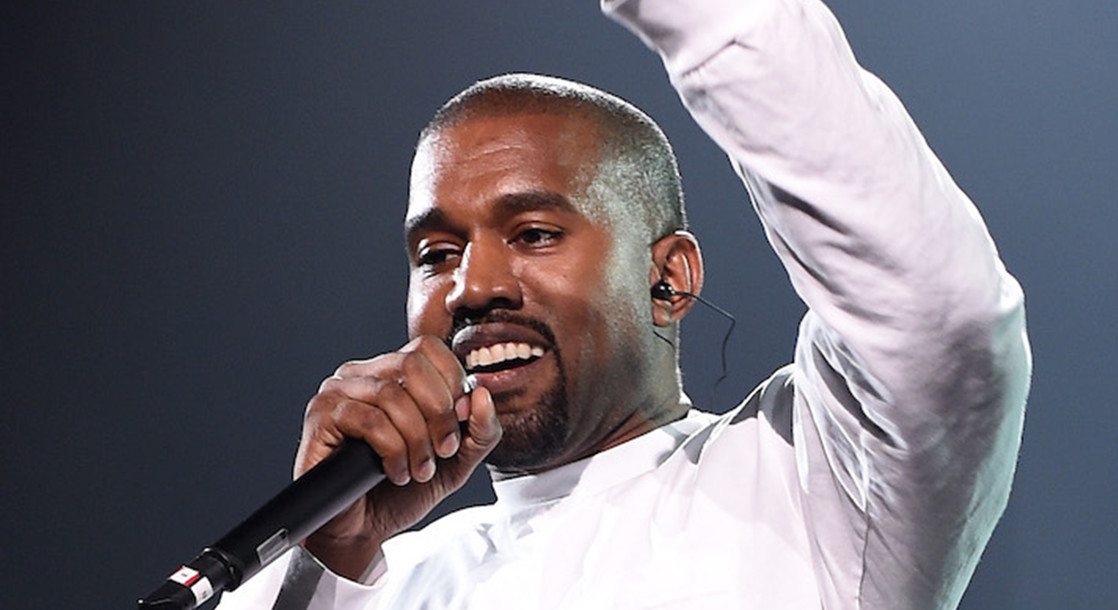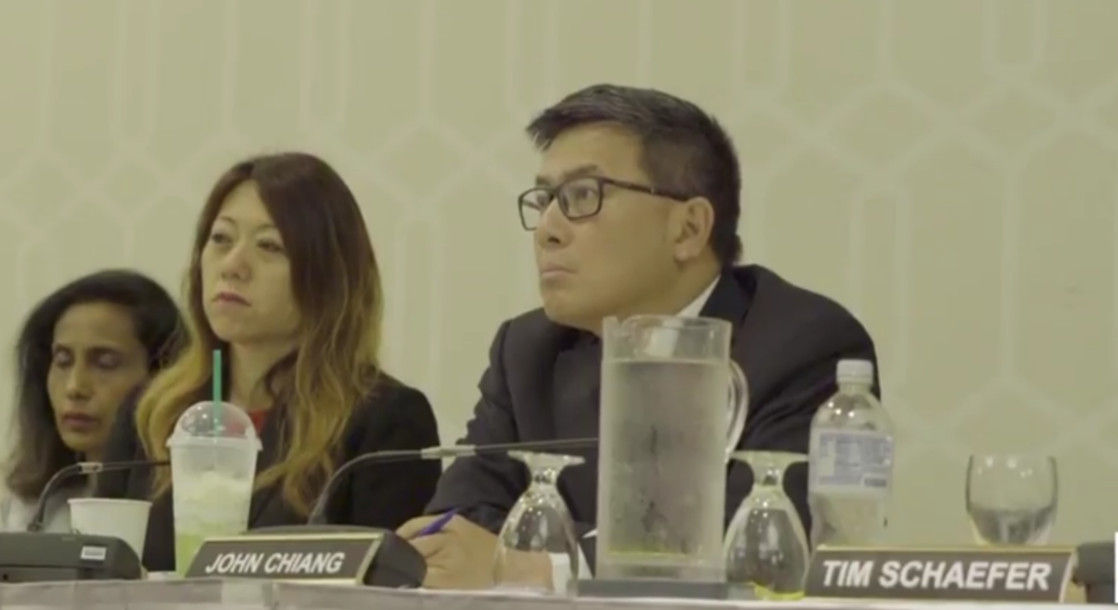This week in Michigan, the march towards legalization took an odd detour when advocates of legalization, most of whom had medical cannabis cards from the government of their state, met in a nondescript building in East Lansing and became the first congregation of the First Cannabis Church of Logic and Reason.
While two women with signs protested outside, parishioners took part in a “BYOB”, which annoyingly stands for “Bring Your Own Beliefs,” but more on the implicit condescension of religion in a moment. The church service included a room full of religious materials, church jargon for joints and edibles arranged on a table, which could be enjoyed by those who possessed a medical cannabis card.
The service consisted of organizer Jeremy Hall’s loose take on a religious gathering, but he readily admitted to a local NBC affiliate that he used the word “Church” because “cannabis cult” sounded more sinister.
While the church may not be perfect—it is a church, after all, and its ideals are permeated by the condescendingly submissive rhetoric of a traditional clerical piece.
Hall is an ordained minister and the monthly meetings are focused on the spiritual aspects of cannabis, even though they also provide the vital and politically inflammatory service of connecting those medical patients in need with the medicine they have trouble finding without a pharmacy system in place in Michigan. The religious materials table constitutes a practical—and entirely secular—miracle for some patients who have now become parishioners.
It would be nice if organizers didn’t have to jump through elaborate hoops and adopt the rhetoric of folksy country preachers in order to network within cannabis circles, but unfortunately the culture is not yet that normalized.
It would be nice if there could be a cannabis book club meeting every week instead, talking about cannabis as it pertains to business practices, land reform, the election of 2016—anything really, except the wheel-spinning sameness of gathering to discuss “spiritual impacts” of the plant.
We’ve had enough waxing poetic about how great cannabis is, and even the First Church seems to realize this, with its table of medicine for those in need—but what can a church offer us that we haven’t seen before? Why should this commodity, on the verge of a leap into the mainstream, have the waters of its future muddied even further by introducing a religious question to its politics.











